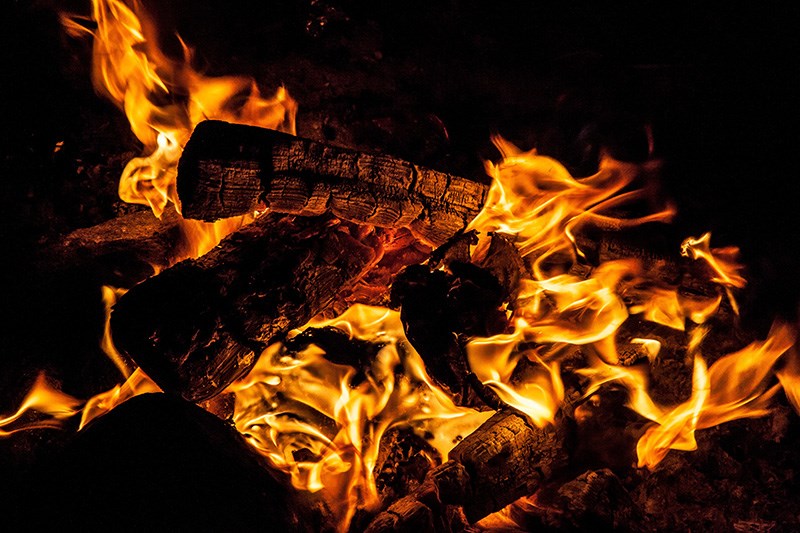The recent dry weather has been great news for people enjoying summer vacation but it's keeping Tri-City fire departments on high alert.
Port Coquitlam Fire Chief Nick Delmonico said the summer is his department’s busiest season as crews respond to more accidents, problems encountered by swimmers and brush fires. In fact, he said, since the spring rains stopped, firefighters have been averaging two brush fires every day, even as the BC Wildfire Service enacted a ban on July 6 on open fires across the province.
The ban includes any kind of campfire or open flame in a backyard fire pit, fire box or even a tiki torch, as well as open burning of debris and yard trimmings.
Delmonico said that message hasn’t deterred homeless people squatting in Gates Park from lighting fires to cook food or keep warm in the evenings. The department will begin sending patrols into local parks to educate people about the ban and 14 signs are being posted in the park and along the Traboulay PoCo Trail reminding visitors to not light fires.
Delmonico said the department is also using social media, its website, mail-outs and handouts to remind residents of the burning ban. Blanket coverage on the nightly news of the wild fires currently burning in the Interior and northern parts of the province also helps keep the dangers of open fires in this dry weather top-of-mind.
Still, Delmonico said, some people persist.
“We always have to go with the lowest common denominator,” he told The Tri-City News. “The people in PoCo seem to be on board but sometimes people are a bit surprised at what we don’t allow.”
In Anmore and Belcarra, the fire ban means campers and picnickers can’t light a campfire.
Jay Sharpe, chief of the Sasamat Volunteer Fire Department, which is responsible for the villages, said so far his crews have responded to one campfire but more troubling was a resident who insisted it was his right to be able to burn debris on his property.
“It was shocking to see,” said Sharpe, adding while it’s normally OK for village residents to do such burning provided they have a permit, all such permits have been suspended because of the ban.
Sharpe said the defiant resident was issued a fine that can range anywhere from $100 up to $5,000.
“Common sense would tell you there’s a burning ban,” Sharpe said. “You’d have to live in a bubble not to know there’s a ban.”
Rod Gill, the deputy chief of operations for the Coquitlam Fire and Rescue, said so far, it has been a “typical” summer but now that the city has raised its fire danger rating to high as of Wednesday, a coordinated approach between firefighters and the parks department to increase patrols in parks will kick in. That includes reminding people of the smoking ban in all city parks as well as keeping a sharp eye out for piles of firewood stacked for an imminent party. Fines for smoking or setting fires in parks also increase to as high as $500 between April and September.
“We go through this every year,” said Gill.
In Port Moody, council adopted a bylaw amendment on Tuesday that prohibits any open-air burning. Violators face a $250 fine.
“Everywhere you go in Port Moody, the forest is literally in our backyards,” Coun. Zoe Royer said in supporting the latest amendment. “It is such an epic risk.”
Only Coun. Rob Vagramov opposed the amendment. He said there could be a middle ground that would allow people to have fires if their neighbours didn’t object.



